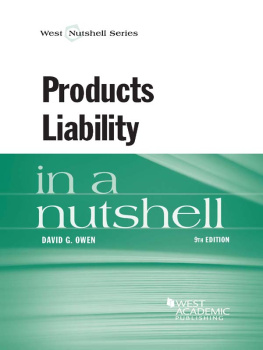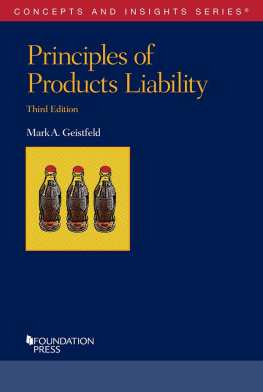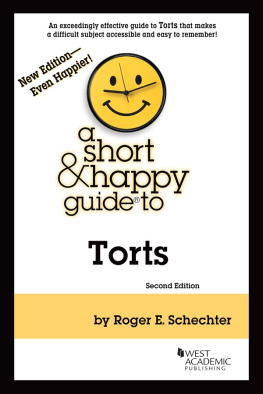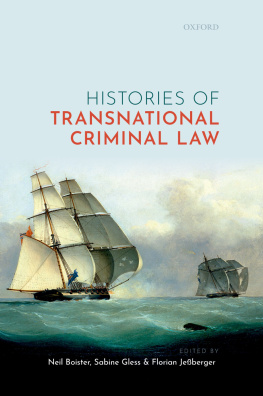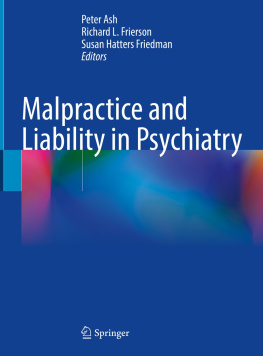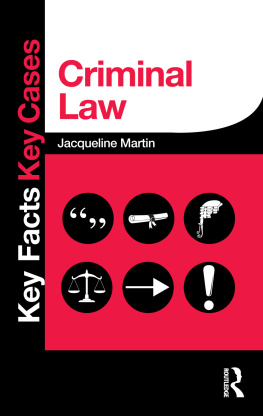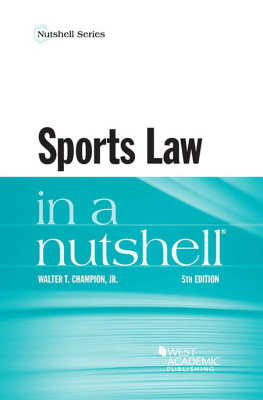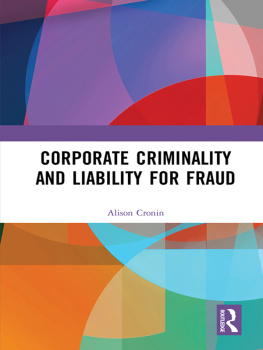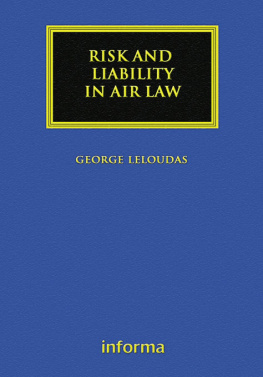Appraising Strict Liability
Andrew Simester
List of Contributors
R. A. Duff, Professor of Philosophy, University of Stirling.
John Gardner, Professor of Jurisprudence, University of Oxford.
Stuart P. Green, Professor of Law, Louisiana State University.
Jeremy Horder, Porjes Foundation Fellow and Tutor in Law, Worcester College, and Reader in Criminal Law, University of Oxford.
Douglas Husak, Professor of Philosophy, Rutgers University.
Alan C. Michaels, Edwin M. Cooperman Designated Professor of Law, Moritz College of Law, Ohio State University.
Antje Pedain, University Lecturer in Law, University of Cambridge, and Fellow of Magdalene College.
Paul Roberts, Professor of Criminal Jurisprudence, University of Nottingham.
A. P. Simester, Professor of Legal Philosophy, University of Nottingham.
John R. Spencer, Professor of Law, University of Cambridge, and Fellow of Selwyn College.
G. R. Sullivan, Professor of Criminal Law, University of Durham.
(p.xvi)
- Great Clarendon Street, Oxford OX2 6DP
- Oxford University Press is a department of the University of Oxford.
- It furthers the Universitys objective of excellence in research, scholarship,
- and education by publishing worldwide in
- Oxford New York
- Auckland Cape Town Dar es Salaam Hong Kong Karachi
- Kuala Lumpur Madrid Melbourne Mexico City Nairobi
- New Delhi Shanghai Taipei Toronto
- With offices in
- Argentina Austria Brazil Chile Czech Republic France Greece
- Guatemala Hungary Italy Japan South Korea Poland Portugal
- Singapore Switzerland Thailand Turkey Ukraine Vietnam
- Published in the United States
- by Oxford University Press Inc., New York
- The moral rights of the author have been asserted
- Crown copyright material is reproduced under Class Licence
- Number C01P0000148 with the permission of HMSO
- and the Queens Printer for Scotland
- Database right Oxford University Press (maker)
- All rights reserved. No part of this publication may be reproduced,
- stored in a retrieval system, or transmitted, in any form or by any means,
- without the prior permission in writing of Oxford University Press,
- or as expressly permitted by law, or under terms agreed with the appropriate
- reprographics rights organization. Enquiries concerning reproduction
- outside the scope of the above should be sent to the Rights Department,
- Oxford University Press, at the address above
- You must not circulate this book in any other binding or cover
- and you must impose this same condition on any acquirer
- British Library Cataloguing in Publication Data
- Data available
- Library of Congress Cataloging in Publication Data
- Appraising strict liability / edited by A. P. Simester.
- p. cm.
- ISBN 0199278512
- 1. Criminal liability. 2. Strict liability. I. Simester, A. P
- K5064. A967 2005
- 345.04dc22 2004027965
- ISBN 0199278512(Hbk)
- EAN 9780199278510
- Typeset by Newgen Imaging Systems (P) Ltd., Chennai, India
- Printed in Great Britain
- on acid-free paper by
- Biddles Ltd., Kings Lynn
Contents
John R. Spencer, and Antje Pedain
(p.v) General Editors Preface
English criminal law uses forms of liability that may fairly be termed strict in large numbers: quite possibly there are more offences imposing strict liability than requiring fault, and more offences of this kind than in most other European countries. Yet the moral objections to holding people liable to conviction of a criminal offence when fault has not been proved against them run deep and are well known. Can the approach of English criminal law be justified? In this volume the complexity of that question is laid bare. There are questions of definition, of fundamental moral and political principle, of human rights, of the implications of the presumption of innocence, of the need for this kind of offence (as compared with neighbouring countries), and many others. Some of the authors are persuaded of the justification for certain forms of strict liability in particular types of situation, but most of them argue against. This is a volume that is rich in the texture of its reasoning, and draws together an array of leading scholars, mostly in the Anglo-American tradition, to light up this rather neglected but nonetheless hugely significant area of contemporary criminal law. If there is cause for pessimism about the prospects for a major change in the direction of English law in this respect, that would take nothing away from the searching examination of the issues in these ten scholarly essays.
Andrew Ashworth (p.vi)
(p.vii) Preface
By April 1949, the Nationalists were losing. Maos forces had reached the Yangtze River and were advancing upon Nanking. Their successes meant that the movement of neutral shipping was now under threat. In order to protect British interests, including the embassy at Nanking, the Royal Navy frigate Amethyst was ordered to sail for the Nationalist capital.
The Amethyst proceeded up the Yangtze on 19 April, navigated by Peter Berger (as he was then). But on 20 April, sixty miles from Nanking, she was crippled in a devastating attack. Shells hit gunnery control, the wheelhouse, andtwicethe bridge. Many, including the captain, were killed. The steering jammed and the ship ran aground. Berger himself suffered severe wounds to the chest, arm, and leg. But, in what became known as the Yangtze Incident, Berger organized sailors to defend the ship while he destroyed its cipher machine and code books. Dosing himself on morphine, he and the First Lieutenant managed to get the Amethyst refloated and away from the Communist batteries. The Amethyst was saved: and Berger had a DSC.
One may safely conclude that Vice-Admiral Sir Peter Berger, KCB, LVO, DSC was a man of considerable courage, with no pressing desire for the life of the armchair. After retiring from the Royal Navy in 1981, Berger was appointed Bursar of Selwyn College in Cambridge, an office he held with distinction for a further ten years. Yet his retirement, when it came, was two years early.
Why? Sir Peter had discovered that, as the law stands concerning food hygiene and health and safety, the College (and possibly its officers) were almost certain to be convicted if anything went wrong in the College or its kitchens, and this was so irrespective whether anyone was actually at fault: it all turned, in effect, on whether the inspectors would exercise their discretion to prosecute. He said to his friends that, as an honourable man, he viewed being prosecuted and convicted for a criminal offence as something seriousand did not wish to be in the position where he might incur a conviction in respect of something for which he was not at fault.


